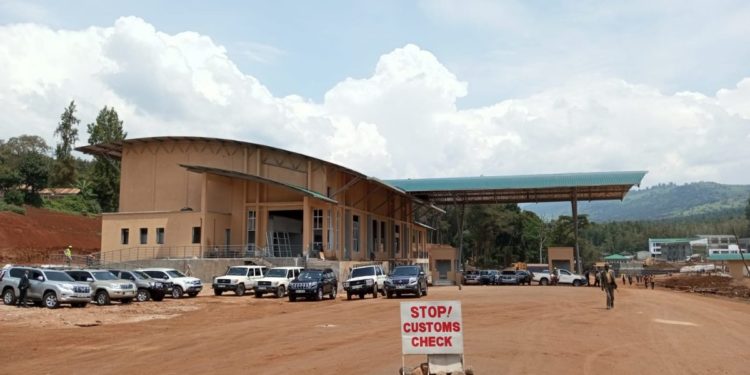In a significant development for cross-border trade between Kenya and Uganda, the Suam customs point is set to be opened within a month. This comes as an addition to the common border crossings at Malaba and Busia. This move comes as a boon for traders from both nations, as it is set to streamline trade processes, reduce delays, and boost economic activities along the border.
Read more: Kenya and Uganda Seek Financiers for Stalled Naivasha-Kampala Standard Gauge Railway Project
Located at the border between Kenya and Uganda, the Suam One-Stop Border Post (OSBP) serves as a nexus for trade activities and the movement of people between the two nations. The project’s primary objective is to create a seamless environment where goods can be efficiently inspected and cleared, reducing delays and minimizing opportunities for illegal activities.
Security concerns have long been an issue at border crossings, with vulnerabilities often exploited by criminals engaged in smuggling and other illicit activities. The Suam OSBP’s integrated security measures, including advanced scanning technologies and collaborative law enforcement efforts, are set to curtail these activities and strengthen regional security.
In the first quarter of 2023, Uganda accounted for a third of Kenya’s exports to Africa, with Kenyan traders trucking goods worth Kshs 30.96 billion into Uganda over the same period. Kenya exports vegetable oils, pharmaceuticals, paperboard, iron and steel to Uganda while importing dairy products, sugar and eggs. With the new customs designation, businesses on both sides of the border can explore expanded opportunities for growth as trade becomes more efficient and predictable. This development also bodes well for local communities, as increased trade activities are likely to stimulate economic progress and create employment opportunities.
Read more: Kenya Building More Ships For Uganda Fuel To Expand Lake Victoria Trade
As Kenya and Uganda take this progressive step to enhance trade ties, the two countries need to work on streamlining their border processes by reducing delays due to customs, origin regulations, trade limits, tariffs, technical obstacles, and import licenses and permissions.
Email your news TIPS to editor@thesharpdaily.com















